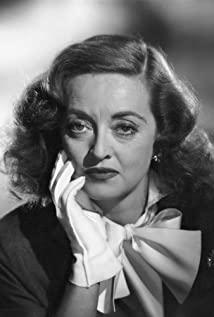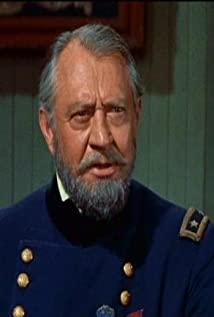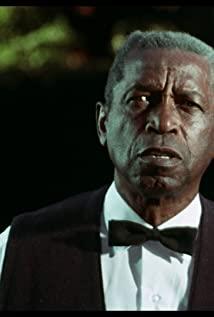I don't know how the heroine of "Little Fox" in 1941 was reacted, but if this glamorous lady with water snake waist and fat skin came to the 2020s, she would definitely be "beautiful and miserable" that caused warm cheers.
She is "greedy" - glamorous and enchanting, pampered, uneasy about the status quo, her heart and eyes are constantly rolling, she sells her daughter and her husband, and once she wears the veil, she loves no one; With her long eyelashes drooping down, I can see her telling the cause of her "greed" with pity - a tragic childhood, long-term neglect by her parents, her elder brother occupying the family property, the absence of the original family has opened a hole, and slowly it has become a filler. Dissatisfied hole.
I believe that there will be audiences who will love her very much.
She symbolizes the awakening of women in an extreme situation.
The first awakening is that honesty about desire transcends the worldly stereotype of women's "utilitarian heart" - the heroine ambitiously plans a future far away in Chicago, guides her brother to imagine getting rich together, and even surpasses men like men. Do not cover up the yearning for money and power;
The second is to break through the image of women under the traditional framework - no longer a "selfless mother", but a dictator who profited from her daughter's marriage; no longer a "considerate wife", but a shrew who cursed her husband's early death in front of her face; no Then there is the "beautiful little sister", but the blackmailer who threatens the brother's delegation of power;
The last level of awakening is to go beyond the "female" level and reach the discussion of human nature itself - to achieve the change of power through "father-killing (patriarchy)".
The last layer is the layer that distinguishes the heroine from other "evil girl" images.
This layer is vicious enough, it is the truth of "human" nature, and the truth lies in the fact that the evil of human nature does not need cause and effect; but it is also very cowardly, it is the sorrow of "female" nature, the sorrow lies in the "female" nature referred to here rather than the "female" nature. Female" is not a gender attribute relative to "male", but a "maternal" culture relative to the "patriarchal" system.
Gender is no longer relevant at this time, and it is not only women who are oppressed under the patriarchal system.
Imamura Shohei depicted the birth of a serial murderer in "Vengeance Is Me". The male protagonist hated his father since childhood, but he has never been able to break through the bottom line of murdering his father. This contradiction makes the male protagonist unable to face the empty self, only "Incompetent Fury" turns to murder innocents everywhere. In the end, the father stood in front of the son who was about to be executed and said: You can't kill me, you don't have the courage. You only dare to kill people you don't hate .
Similarly, in the climax of "Little Fox", the heroine's "evil" is fearless, watching her husband die without any mercy, but at the same time it is the cowardice of the patriarchal system - she only dares to kill her hate people .
When her parents were neglected, she did not dare to complain; when her elder brother plundered, she did not dare to resist; when the world agreed that a man would marry a woman, she would marry a woman. Like the male protagonist of "Vengeance Is Me", he hates the father and brother society, but he cannot break through the traditional concept. This conflict also makes the female protagonist unable to face the empty self.
The heroine's husband asked her why she married him, and the heroine replied: "Because I was lonely when I was young. I was really lonely, not the loneliness that ordinary people mean. I couldn't get what I wanted when I was lonely ." So the heroine put herself The loneliness turned into greed for materialized material. In fact, does the heroine really desire money and power? It's just that the sense of emptiness that the original conflict cannot be resolved needs a foothold.
The nothingness that cannot solve the root cause brings endless greed for material things, and finally the heroine's husband is buried for it.
On the surface, it seems that the female protagonist has completed the "Husband Killing" as a slick article in "The Legend of Zhen Huan". However, in the context of this film, "Husband Killing" is not equivalent to "Father Killing". The heroine did not complete her resistance to the patriarchal system.
Of course, it does not mean that "Little Fox" is a failed work of awakening female consciousness, but there are unavoidable limitations in the context of the times. Before the patriarchal system cannot be overthrown, the more important thing is to find the original intention that was distorted under the power.
The last words the heroine said to her daughter: "Xiao Shan, you finally have an idea. I always thought you were a sweet little sweet water without content." (Xiao Shan, congratulations, you are no longer part of the patriarchal system. Ladies products made by the assembly line.) "We shouldn't be bad friends, I don't want us to be bad friends." (Our end points are actually different, although the path you have to walk is different from mine.) Can be seen as a The extreme case of female awakening faces the repentance of the younger generation and the redemption of the self.
I hope everyone will not commit themselves to power and be unable to face their true self. They dare to "kill" the people they really hate, and they dare to fight for the life they really want.
View more about The Little Foxes reviews











